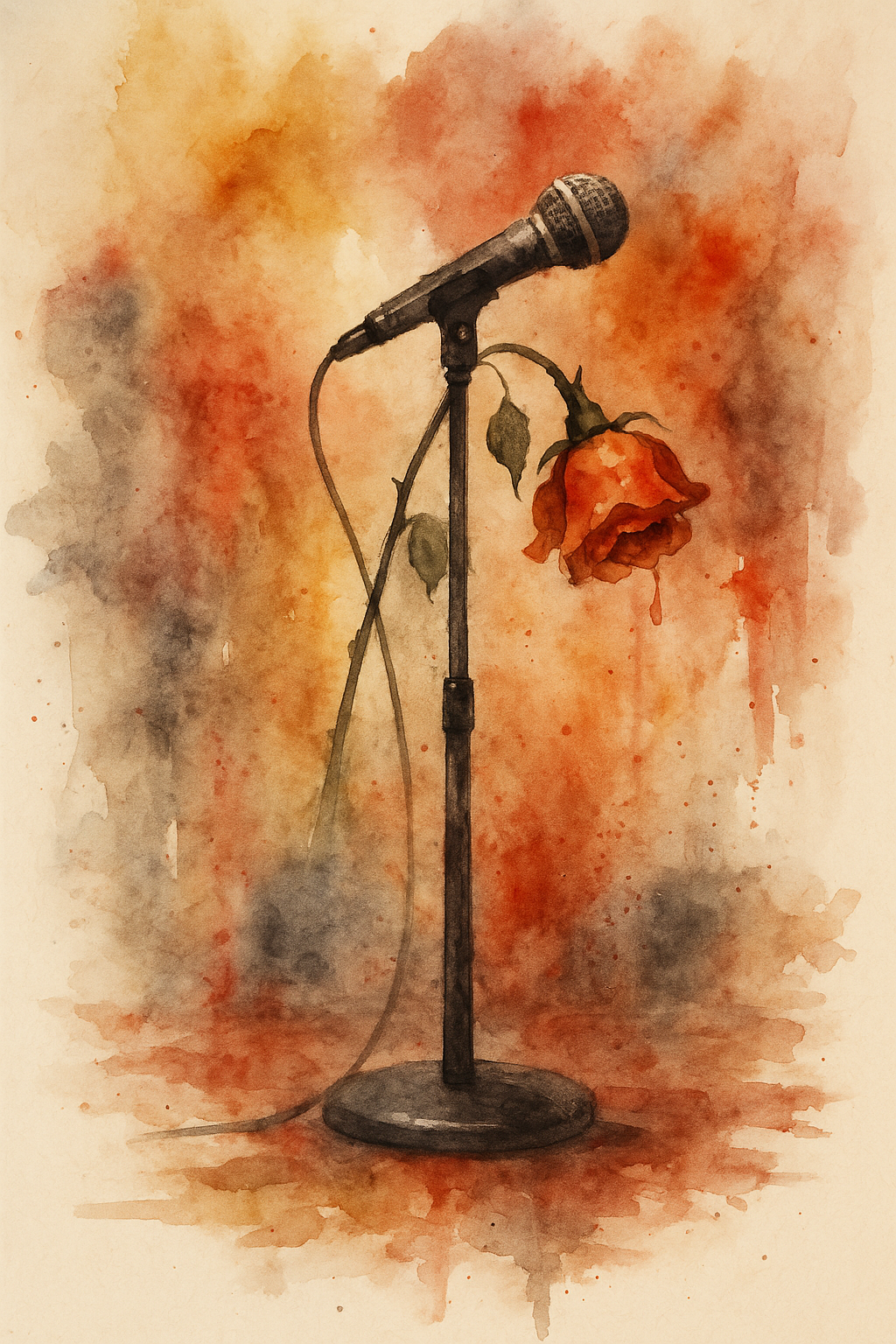“Don’t Speak changed everything — it’s the heartbeat of who I am.”
— Gwen Stefani, The Guardian, 2024
SONGBREAKER #1: “Don’t Speak” — No Doubt
SONGBREAKER: Where we crack open the tracks that cracked us open.
We dive past the charts and the trivia into the blood, bone, and heartbreak of the songs that still echo decades later. No nostalgia goggles, no industry gloss — just the truth hiding in the chords.
Some songs don’t just break your heart — they autopsy it in real time. “Don’t Speak” is one of those songs.
It’s 1996, peak alt-rock chaos. No Doubt’s Tragic Kingdom is blowing up, ska horns blaring from every car radio, and then suddenly — silence. The band drops “Don’t Speak,” a four-minute heartbreak ballad that halts the party mid-skank.
Behind that quiet storm was something brutally human. Gwen Stefani and bassist Tony Kanal weren’t just bandmates — they were partners for seven years. When they split, there was no clean break, no space to breathe. They had to live inside the wreckage together, night after night, rehearsing, touring, pretending everything was fine.
“We were on tour for eight years and we broke up right before the record came out,” Gwen later told Rolling Stone in 2004. “It was torture. Every day — the show, the radio, the TV — it was all about the breakup.”
The song actually started as a love song, co-written by Gwen and her brother Eric Stefani, No Doubt’s founding keyboardist. But love curdled. Gwen rewrote the lyrics after the breakup, reshaping it into a post-mortem wrapped in melody. The sweetness drained out; what was left was ache and surrender.
You can hear that transformation in every note. The guitars are restrained, the drums feel careful — almost hesitant — as if the whole band is holding its breath. Gwen’s voice trembles but never cracks completely; it’s the sound of someone trying desperately not to fall apart in public. When she sings “I really feel that I’m losing my best friend,” it’s less performance, more confession.
That’s the genius of “Don’t Speak”: it’s heartbreak with no theatrics. It’s not about anger, revenge, or closure. It’s about restraint — the quiet part of grief that comes after the screaming stops. “Don’t tell me ’cause it hurts.” It’s the line you whisper when you already know the truth but can’t survive hearing it said out loud.
The track almost never needed a chorus that big, but it earned one anyway. Its emotional precision was so raw it didn’t just connect — it detonated. The song topped the Billboard Hot 100 Airplay chart for sixteen straight weeks, hit number one around the world, and helped Tragic Kingdom sell over sixteen million copies. Not bad for something that began as a private heartbreak scrawled in a notebook.
The Sophie Muller-directed video nailed that same tension. Gwen — blonde, luminous, and bleeding glamour — stands front and center while the rest of the band fades into the background. It’s art imitating life, and it hit uncomfortably close to home. For the band, it was both therapy and torture — the wound that made them famous.
Nearly three decades later, “Don’t Speak” still feels like bumping into your ex in public — you look fine, you say the right things, but inside, your pulse is chaos. It’s the sound of holding your breath while the air leaves the room.
This isn’t just a breakup song. It’s a breakup caught in progress — alive, unresolved, and beautifully broken.
And maybe that’s why, even now, it still hurts the same.

